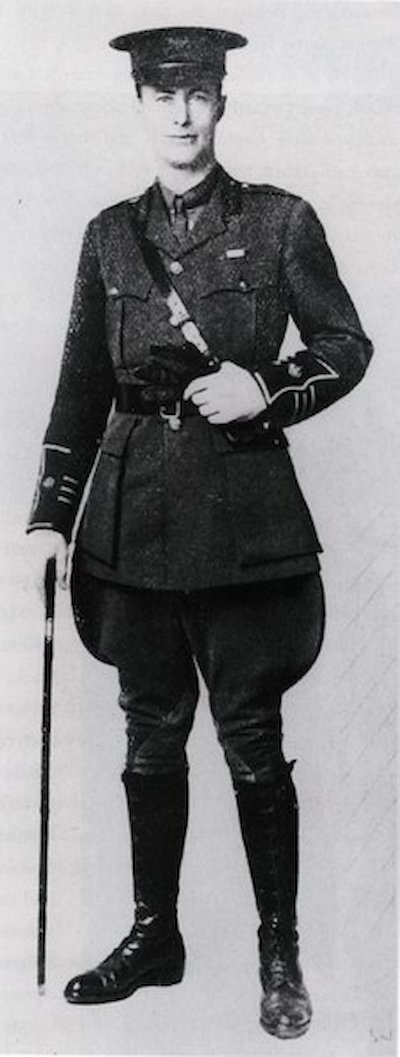Battles at home and abroad
I feel that a man like you is wasted if not playing some special part for the benefit of the army at the front and I think it is possible that the War Office at home might make use of your scientific services, especially as they are combined with such well-known capacities for organization and leading men, and as you are deservedly known for unparalleled fortitude and endurance.
So wrote General Hubert Foster, Chief of the Imperial General Staff in Australia, to Mawson. Mawson had filled some of his time in 1915 as Adelaide secretary for the national campaign for to introduce conscription, involving a degree of public exposure and a massive rally at Adelaide Town Hall. (The campaign was unsuccessful; in October 1916 Australians would vote against conscription.)
Having, with Foster’s help, secured leave from the University of Adelaide, Mawson headed back to England to seek a war appointment with the British government. Paquita and baby Patricia moved to her parents’ home in Melbourne. Travelling via San Francisco and an overland journey across the Rockies, Mawson arrived in London in May 1916.
Immediately he found himself in the thick of a drive by supporters of Ernest Shackleton’s overdue Endurance expedition to find the missing party and relieve the Ross Sea party on the other side of the continent. He was wondering whether to volunteer his services for a rescue mission when word came that Shackleton was safe in the Falklands before going south again to rescue the rest of his stranded party — including Mawson’s old comrades Frank Wild and Frank Hurley.
So Mawson turned his attention to the war. With the help of David Lloyd George (later to become British prime minister), he secured a position with an international commission to ensure safe shipment of war munitions to northern Russia. Living in a hotel in Liverpool, he found the work straightforward — but not nearly stimulating enough. An antidote to boredom was a correspondence with Robert Scott’s widow, Kathleen, with whom he had struck up a friendly acquaintance over the previous two years.
With the last ship departed for Archangel in Russia (ice prevented shipping from November through winter), Mawson invited Paquita to join him. She promptly took ship, leaving Patricia in the care of relatives in the United States and arriving in London late in the year. Paquita was to present him with their second child, Jessica, in October 1917.
A new task for the international commission involved reporting to the Russian government on procedures for manufacturing high explosives and chemical weapons, and then, following the 1917 Bolshevik revolution, taking charge of all the commission’s munitions and fuel supply functions. He finished the war with the rank of major.
Mawson returned to the University of Adelaide in 1919 and was appointed professor of geology and mineralogy in 1921.

